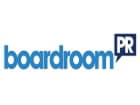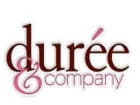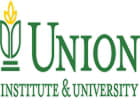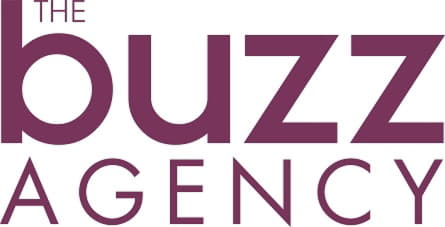In this episode of Motley Fool Money, Chris Hill chats with Motley Fool analysts Andy Cross and Jason Moser about the latest headlines and earnings reports from Wall Street. They've got news on some retail stock gains, home improvement stocks falling despite posting profits, and a kitchenware and home furnishing giant that crushed earnings estimates and hit an all-time high. They've also got financial software companies' earnings reports, a new entrant disrupting the pharmacy space, and America's fastest-growing restaurant chain. They share some stocks to keep on your watch list and much more.
Also, catch Motley Fool analyst John Rotonti's interview with Gene Munster and Doug Clinton, the co-founders and managing partners of Loup Ventures, on the future of gaming.
To catch full episodes of all The Motley Fool's free podcasts, check out our podcast center. To get started investing, check out our quick-start guide to investing in stocks. A full transcript follows the video.
Should you invest $1,000 in Wal-Mart Stores, Inc. right now?
Before you consider Wal-Mart Stores, Inc., you'll want to hear this.
Investing legends and Motley Fool Co-founders David and Tom Gardner just revealed what they believe are the 10 best stocks for investors to buy right now... and Wal-Mart Stores, Inc. wasn't one of them.
The online investing service they've run for nearly two decades, Motley Fool Stock Advisor, has beaten the stock market by over 4X.* And right now, they think there are 10 stocks that are better buys.
*Stock Advisor returns as of November 20, 2020
This video was recorded on November 20, 2020.
Chris Hill: We begin with some of the biggest retailers in America.
We'll start with Walmart (NYSE:WMT), which heads into the holiday season with momentum. Digital sales in the third quarter rose 79%. And Jason, shares of Walmart hitting a new high this week.
Jason Moser: Yeah. I mean, it's no Target (NYSE:TGT), but, hey, they did OK. [laughs] I mean, really though, hats off to Doug McMillon and the team there at Walmart for continuing to invest in Walmart's digital business and not just sitting still. They really are moving. And I think we're seeing a lot of great results because of that. And I think another thing that we're seeing today, we've always talked about the Amazon threat and e-commerce, but really, I think what we're seeing, it's all about being omnichannel. We see that word bandied about a good bit, but really, I think it matters, because if you're that retailer that can have the physical presence along with the digital expertise, you can do so much more, and we're certainly seeing that with Walmart. It's kind of been revived a little bit here.
I mean, the numbers aren't tech company numbers, but still impressive. Topline was up 5.2%, 6.1% if you exclude currency effects. U.S. comps were up 6.4%. As you mentioned, e-commerce sales grew 79%. And you know the interesting thing is there, given the state of things today it's understandable why e-commerce is doing so well, but even last year the same quarter, those e-commerce sales grew 41%. So, we're seeing some nice acceleration there, and it's something that's been performing well for a while.
Costs are coming under control, and interestingly in the U.S., you're seeing trip consolidation. So, folks are going to the store less, but they're buying more. So, we saw an average ticket increase of around 24%, but a transaction decrease of about 14%. So, fewer transactions, but they're buying more. And that's kind of that pantry-stuffing we've been hearing so much about. It seems like that's becoming a little bit more of a thing here as we go into the end of the year.
Inventory levels are very healthy, they are enthusiastic about the Walmart+ offering; they're not really giving a whole lot of insight there yet, because it's still so new. But they just continue to do a lot of really good things, and the market is, I think, rewarding them for that.
Chris Hill: Speaking of Target. Target's shares also hitting a new high this week after a blowout third quarter. Same-store sales up 20%. And Andy, as Jason sort of hinted at, their digital sales went through the roof.
Cross: Yeah, Chris, digital sales are up 155%, that was a deceleration from a really strong second quarter of 195% growth. That digital sales growth now equals half of their comp growth. And their comp stores, as you mentioned, Chris, up more than 20%, really accelerated throughout the quarter. At the store comps itself, just in the stores was up 10%, that's a 4.5% increase in traffic growth. So, a little bit different than what we're seeing in Walmart. And then the average ticket size went up 15%. So, for Walmart it was up more than 24%, so Target a little bit less, but they're seeing still more traffic into their stores.
Same-day services, like, order pickup, drive up, and Shipt up 217%. 95% of all their orders now are fulfilled by the store, so they're really leveraging that omnichannel experience that Jason mentioned for Walmart, Target really leveraging that. They've gained market share in all five of their core merchandise categories. Sales per square foot was up 19% so far this year. They're gaining market share. They've gained the equivalent of $6 billion, Chris, in market share this year.
So, really strong category growth in decor and kitchen essentials, beauty, food comps, seeing a lot of strength in adult beverages, which I know, while I have not bought any at Target, I certainly have indulged in a little bit more this year. Earnings per share from their operating business is up 46%, really nice strong gross margins. They're seeing exceptionally low markdown rates, Chris. So, they're not marking down their products nearly as much as maybe they have in the past, and that's really been a boost for their business. Their operating margins expanded to 8.5% versus 5.3% last year, so they're going to resume their share buyback that they suspended earlier this year and they have $4.5 billion of that.
So, real innovations. They have a new partnership with Beauty Ulta [Ulta Beauty] (sic) they have a new partnership with FAO Schwarz, they're going to offer 70 pieces of different toys for each of the under $20, they're making loads of investment in their technology. So, you have a business that is not priced all that expensively at 22X earnings and 10X operating profits, $85 billion in market cap. So, you get a nice little dividend to go and it's growing at 10%, Chris.
So, overall, Target looks to be in really good shape right now.
Hill: One minor quibble on my part, and maybe this was too much to hope for, but Brian Cornell, CEO of Target; Doug McMillon at Walmart, we didn't really get a lot of color from either one of them in terms of what they're expecting this holiday season. Like I said, that might have been a little too much to hope for given how guidance has gone away for a lot of these companies, but I was looking for that.
Cross: Yeah, Chris, one thing, like many retailers, they are expanding that Black Friday timeout. Target will be closed on Thursdays, they're going to be open regular hours on Black Friday, but they're extending all of those deals. And whatever deals they are offering, like I said, they're not really doing a lot of markdowns throughout the month of November into December. So, really spreading that out to be able to benefit from that omnichannel operation.
Hill: From general retail to home improvement. Home Depot and Lowe's, both out with third quarter reports this week. Similar stories, Jason, profits look good, same-store sales up, both are investing in customer and employee safety, and one more similarity, shares of both falling this week.
Moser: [laughs] Yeah, fell a little bit this week, but still doing well overall for the year. Both companies' shares are outperforming the market and really, kind of, tracking each other pretty nicely. In regard to Home Depot, it really does feel like short of an unforced error on the part of management, I just don't know [laughs] what stops this train. I mean, this is a really, really good business that participates in one of the most attractive market opportunities out there, to my mind.
But if you look at the numbers, sales of $33.5 billion for the quarter, that was up 23.2% from a year ago. Comp sales for the quarter were +24%, comp sales in the U.S. were +24.6%. Earnings per share, obviously, the growth there tracking with that performance.
And when it comes to these businesses, oftentimes we're looking, again, at the tickets and the transactions. The comp average ticket for Home Depot grew 10%, comp transactions grew 13%, but the one point that really stood out to me was that during the third quarter, big-ticket comp transactions, those that are over $1,000, there was 23% growth there, which is just really impressive. I mean, you go to Home Depot, you know you need something, even if you don't know specifically what you need, but you know you're going in there, you're preparing yourself to spend some serious money, and that shows through in that metric there.
And with Lowe's, a lot of similarities there. Total comps up just over 30%, they saw strength in DIY, the do-it-yourself, and the pro customers. Lumber has been a big driver this Fall; I think, with the warmer weather, we've seen a lot of activity out there. The pro business was up 20% for Lowe's, they are making a lot of investments there. But they've seen, I think, how big of a driver it can be for Home Depot and they're wanting to participate in that opportunity as well.
So, 106% growth on Lowe's.com business. And we talk about transactions and tickets, they saw transaction growth of 16.4% and ticket growth of 13.7%. So, very similar stories, very understandable why they're succeeding, and I don't see that, really, changing anytime soon.
Hill: Real quick, Jason, before they came out with earnings, Home Depot announced they're buying HD Supply for $8 billion, they had spun that out a dozen years ago or so, you like this move?
Moser: Yeah, I do. You know, I think with something like a Home Depot, you're owning that stock primarily for the dividend, it's not something where the capital gains are just going to be massive, because it's already so big, although it is a big market opportunity. This I think adds to that market opportunity; it's a $55 billion marketplace as they see it. The maintenance, repair and operations, that MRO business, it's a really attractive one, and we've seen a lot of success stories come out of that market in the past. And so, bringing that into Home Depot's physical infrastructure, giving them that distribution and that capability, I think only helps them in the long run. So yeah, I think it's a pretty good deal.
Hill: Shares of Williams-Sonoma (NYSE:WSM) hitting an all-time high on Friday, after digital sales in the third quarter rose a record 49%. Andy, we've been talking omnichannel strategy on the show so far, Williams-Sonoma has been doing this for a while now, and even with that experience, you look at this quarter, it's impressive.
Cross: Yeah, Chris, they started this a few years ago, as they started the push, but it was very slow, because so much of their business is still in their stores. I think pre-COVID 80% of their business basically came from their stores. That's almost now completely reversed. As you mentioned, revenues up 22.4% to $1.8 billion, that was far ahead of analysts' estimates at $1.6 billion. Looking at their compatible brands, that was up 24%, and that was an acceleration from 10.5% in the second quarter. So, you saw growth in Williams-Sonoma of more than 30%. Pottery Barn Kids and Teens up the same, about 24%, and West Elm, their furniture business, up about 22%. So, as you mentioned, the e-commerce business up almost 50%; an acceleration from the second quarter. So, a lot of excitement going into that e-commerce business.
Their store comps were down 11%, but they actually saw acceleration throughout the quarter, Chris, so it started worse [laughs] and then it [...] down a -11%. But what was really impressive, and what this means for the profitability, their gross margins saw 4% increase benefiting from lower occupancy costs, offset by shipping and fulfillment cost, as that continued to move more and more to that e-commerce. Their operating margin expanded to 15.6%, that's a record high and a double from last year. And their EPS was up 22%; it crushed estimates. The number was at $2.56 versus $1.56 estimates. So, really a lot of initiatives that they put forth are starting to come into play. And they've been benefiting, obviously, as more and more of us have been at home and looking to beautify our houses, improve our decor, and that's benefiting West Elm.
Interesting, Chris, they also have been investing in the business-to-business market, which they see as a $1 billion sales opportunity for them. Right now, that's at about $300 billion. So, while most of their business is on the consumer side, they really are starting to push a little bit more into business-to-business. So, right now things are looking good for Williams-Sonoma, $8 billion market cap, sells at 6X operating profits, and 15X earnings are really not that expensive. You can't expect really high, super high growth, but you get a little 2% yield to go with it.
Hill: Intuit started its fiscal year off with a bang. First quarter profits for the financial software company tripled. Shares of Intuit basically flat this week, Andy, but it has been a good year.
Cross: Yeah, and revenues up 14%, Chris. Earnings on the adjusted side more than doubled and crushed estimates. The guidance was pretty good at, like, 8% to 10% for the fiscal year. And earnings per share at $8.48, at the midpoint, that's ahead of estimates, they continue to see some nice growth in their small business and self-employed, revenues there were up 13%, that's QuickBooks accounting, it was up 28%. Their QuickBooks online business was up 17%. International, up 50%. That ecosystem, they continue to talk about the strength within that. And the small business was up 24%; a little bit of a slowdown from Q4 with some lower retention, that's something I'm watching.
They continue to make these big bets in AI and connect people and really become the center of small business for accounting and financial matters. And they had their Credit Karma acquisition coming up, and it's going to be interesting how they play along with that. So yeah, a pretty good quarter for Intuit, but nothing that really lit it on fire or was a really massive surprise.
Hill: It was a bad week for pharmacy stocks, shares of CVS Health (NYSE:CVS), Walgreens (NASDAQ:WBA), Rite Aid, and GoodRx (NASDAQ:GDRX) all falling on the official launch of Amazon Pharmacy. Yes, Amazon's newest service enables people to order prescription drugs, have them delivered to their home. And Jason, this is just one more thing built into Amazon's Prime service.
Moser: Yeah, and this is likely an overreaction to an extent. I mean, if you look back to when Amazon made the Whole Foods acquisition, for example, and grocery stores, writ large, shares plummeted; you know, they recovered. It took a little time. This is probably going to be somewhat similar to that.
CVS and Walgreens, companies like that, they're a bit more protected. They are big, obviously, have a very large presence within this industry, and they rely a lot on those pharmaceutical sales. Now, it's interesting with GoodRx, though. I think the selling GoodRx was a bit more rational; at least, I understand it more. And when you look at GoodRx and the way it makes its money, makes its money from its core business, from pharmacy benefit managers, it's a free product for consumers. And so, why does that matter? Well, it matters because ultimately Amazon is looking at least to potentially cut pharmacy benefit managers out of the equation, out of the value chain here and work directly with health plans and employers. If something like that happens, it could certainly threaten GoodRx's revenue stream. And so, I understand the trepidation there.
Clearly, GoodRx's CEO feels like that's less of a competitive threat and more of a complementary offering; I appreciate where he's coming from. It will all depend, really, on if Amazon is successful with this initiative. And given everything that they've done and their expertise, you know, I would not bet against them. [laughs]
Hill: Workday's third quarter results were better than expected, but the software company's guidance for the fourth quarter caused shares of Workday to fall a little bit on Friday. Help me make sense of this, Andy.
Cross: Revenues were up 18% for the quarter, Chris; that's a little slow down from a 20% growth last quarter. Their subscription revenue, which is the bulk of their business, almost 90% of revenues, was up 21%. Again, a little bit of a slowdown, but like you mentioned, Chris, the kind of guidance for the fourth quarter of their fiscal year was for subscription revenue growth of 18%; that's a deceleration from before, and the revenue growth of 22%. So, I think some of the concern, though, Chris, was more on like not giving the guidance for fiscal year 2022, and a lot of that was just because they're seeing this uncertainty around COVID and around expenditures. And they provide the human capital resource management software. With companies just looking to be very careful in how they're spending that, inclines their signing up right now and how much will continue to spend next quarter. So, a little bit of concern from Workday on how much growth they will see next year, and I think that's weighing on the stock, especially as they continue to talk more and more on the conference call about that issue.
Hill: Based in Georgia and specializing in fried chicken, Zaxby's is one of the fastest growing restaurant chains in America. And that growth will probably continue in 2021 now that Zaxby's has teamed up with Goldman Sachs. The investment bank is buying a significant stake in Zaxby's, for more on this we turn to the Georgia native in the group, Jason Moser; is this investment warranted?
Moser: Listen, I think yes. Okay. I mean, I know that the show -- the conversation, when it comes to chicken is always focused on Chick-fil-A or the Jangler. I mean, Mac, listen, as good as the Jangler can be, Zaxby's doesn't get enough attention. And I think as someone who's been to Zaxby's enough times, man! It's really good. I dare say, I think I actually might even put it above the Jangler. I know that sounds crazy coming from me, but it's certainly possible. I can understand Goldman's attraction there. The biggest challenge is going to be to try to take this brand and grow it beyond its Southeastern roots.
I mean, that was the big challenge for Bojangles when that company went public, and you know, they weren't really able to pull that off. Zaxby's is a bit more modern, it's a bit more of a modern flair to it. So, I think they probably could stand a better chance of it becoming a national brand. And you know, Goldman has a lot of money and a lot of levers to pull, so this is definitely a good thing for Zaxby's. And hey, it very well could turn out to be an IPO at some point here, and listen, I would be interested. [laughs]
Hill: I was going to say, real quick, Andy, you got to figure if Goldman Sachs is involved, Zaxby's is probably going public, maybe 2020?
Cross: Well, it's been a huge, hot IPO market this year, Chris. [laughs] So, maybe they'll continue with that and maybe could bring some of that spice over to the IPO market too.
Hill: Gene Munster and Doug Clinton are the Co-Founders and Managing Partners of Loup Ventures, a venture capital firm that invests in frontier tech companies. Motley Fool analyst John Rotonti recently talked with the two of them about some of the video game companies they like best, as well as what do you think of how tech giants like Apple and Amazon are investing in this space. But we'll start with Doug Clinton's bull case for investing in video gaming.
[...]
Doug Clinton: Obviously, we broadly have kind of three components to our thesis. The first is that games are becoming much more like SaaS software than they had been in the past. You know, you don't just go into a GameStop and buy GTA V anymore, and that sort of ends your relationship from a paid standpoint with the publisher. Now, there's in-game content that you buy. There are often season-long subscriptions that you buy, and there are multiple seasons. And so, one game really can become this recurring revenue mechanism that really wasn't the case in the past, if you think about gaming five, six years ago.
And if you think about the multiples of gaming stocks versus SaaS stocks, SaaS stocks trade at about a 2X higher multiple right now than gaming stocks. And I think if that corrects over time, obviously, that gives tremendous upside to gaming stocks. We do think it should correct, just like Apple, historically, was given a hardware multiple. And I think investors, and to Gene's credit, he was the one who really noticed the rift there, and said, that, hey, Apple should trade more like a SaaS company, now it does today over 30X forward earnings, we think the same thing should happen in gaming.
The second thing is that gaming is largely under-monetized. And we went and we looked at, actually, the cost per hour of entertainment for consumers. And Netflix costs about $0.37/hour for the average user. Spotify about $0.33/hour. And Fortnite, League of Legends, you know, the games that are free-to-play for the most part, they cost less than $0.16/hour right now. So, they're about half of what we see for Netflix. We think that that means they're very under-monetized, because people are actually more engaged with those games than they are with Spotify, than they are with Netflix. And so, we think over time those, sort of, pricing rifts should correct themselves.
And then finally, our last piece is that games are the future of social networking. And if you think about Fortnite, I think that they are starting to show that future already. For millennials, for Gen Z, you know, they have really three places they spend time, it's home, it's school, and it's Fortnite. And now they probably [laughs] don't even spend time at school, it's just home and Fortnite. And so, I think as gaming becomes more accepted among the younger generation, they expect to have more interactive experiences in their social world, and to connect with their friends. And so, we think the next Facebook, whatever that ultimately looks like, will be very game-like, it won't be this, sort of, scroll and look at pictures and just like things like we see today.
John Rotonti: So, sticking with you for a second, Doug, Loup Ventures was a private market investor in Unity Software before it came public and had its IPO. So, you've had a while to think about that business. What is your investment thesis in Unity?
Clinton: We love Unity. And you know, I just gave you, kind of, our thesis on gaming. I would say that is piece one, is bullishness on gaming as an industry. Unity has, what we think, something like 50% market share among AAA in-house developed 3D software for game developers.
Point two is that, that type of software creating these virtual environments, these 3D worlds that are movable and have motion and physics, we think that's very relevant for other industries, like architecture, like manufacturing, and so we're starting to see these other types of customers, industrial customers, come in and use Unity Software. And we think it's a huge market opportunity. If you, sort of, comp it against Autodesk. Autodesk has somewhere around 4 million, 5 million annual subscribers to its software, we think that same size market opportunity exists for Unity in this, sort of, industrial opportunity that they're just starting. Go back to our curves, this is a new curve for them that they're just starting.
And then, our third piece of the thesis is, augmented and virtual reality, something we've been bullish on for a long time, I think AR and VR has taken longer than a lot of investors have hoped, but we're still optimistic for the future, we don't know how long it's going to take until those technologies really have an inflection point. It could be five years. But when they do, Unity is really the tool to develop in AR and VR, and so we see that as actually a third curve, if we keep using, kind of, our growth curve model, that sits out after they start to penetrate this industrial curve.
So, we see, kind of, three consecutive curves for Unity, and that's why we're still bullish.
Rotonti: Three curves, better than two. I love that. Gene, do you see a path to profitability, GAAP profitability? And if so, what is your rough ballpark of what you think Unity's operating margins or cash flow margins, or whatever margin you want to give us, could be?
Gene Munster: So, the path to profitability is obviously dependent upon how big of a market these can be, these different curves and where they take off in terms of how to get there and how long it'll take to get there? It's probably a year to a year-and-a-half out of, like, sustained profitability. And that's just simply those revenue growth rates numbers and the amount that they'll have to invest in the business. I don't think that that doesn't change our optimism, that negative peace around profitability because ultimately this should be a higher margin business. I think this should have margins that are 30%, +40% type margins. And you know, ultimately if we can get to Microsoft plus type margins, I think that the story will be rewarded.
The key for us is less about what that margin target is, it really comes back to some of those growth curves that Doug talked about earlier. If we are right on getting that growth number right, this is something that we have observed for a long time, is that we get that right on the topline right, I think that the bottom-line will eventually take care of itself. In the case of Amazon, it's gotten the topline right, the bottom-line has never taken care of itself, but investors are confident that that will eventually happen because the topline is so strong. When we think about Unity, we think it is a similar type of a curve where it's just such an open-ended opportunity.
So, we're comfortable in this gray area around profitability, lack of profitability in the near-term because we believe strongly in the future.
If I would just want to emphasize something that Doug had said earlier too about Unity that to his third and final piece, you mentioned it too, John, about AR and VR, is that we're believers that this is fundamentally going to change how humans communicate and interact. And it feels maybe distant from reality right now given the tech is still nascent, but if you're going to, kind of, benchmark us, and let's say we come back in two years and we have a conversation about AR, in particular, I think that the consensus will be that this is moving in a direction more of the fabric of how consumers are using tech. And I think that unity will continue to appreciate as that reality starts to unfold.
Rotonti: Doug, do you have another gaming company that really excites you right now in addition to Unity? If so, what is it and why do you like it?
Clinton: We do. I'll give you two things, one is, thematically we love the esports space. Now, there's not really an easy public way to play that, I think the companies that we're most interested in in esports are still private, but the public company that we have been tracking very closely is Take-Two. If I tie that back to our comment around gaming and social networking being the future of gaming, we actually think Take-Two has the best chance at being the publisher that ultimately delivers that network. And the reason is simple, they are, in my opinion, the best developers of digital worlds of any game publisher. Look at GTA V and just the GTA, I think, franchise in general, it is as close to a real world as anyone has ever created. You know, World of Warcraft, that's a different kind of world, Fortnite is a different kind of world. And I think that this social world that we ultimately want to spend more time in in the future probably resembles something closer to the real world than something that's more cartoonish. And so, that's our bet on Take-Two is, you know, whether they see it yet or not, we don't know, but I think over the next five, 10 years, they have a real opportunity to turn GTA into not just a game, but a place where people hang out, they interact almost like in real world.
There's this fun little, kind of, social media thing that happened in GTA V, which is by the way a seven-year-old game, which is incredible, during the pandemic, it was cold Purple Gang/Green Gang. And so, there were these makeshift street gangs, essentially, of kids that you chose a side, you were purple or green and you'd go and you'd, sort of, like rumble in the streets and you would, you know, do things together. And you know, [laughs] not promoting gangs in any way, but the idea of going into a digital world and sort of doing something with your friends akin to something that would be happening in the real world, I think is really powerful, and there's something there that I think is worth digging into more as it comes to Take-Two.
Rotonti: Gene, Microsoft is really leaning into gaming. It has Xbox, Minecraft, Flight Simulator, and it recently launched Xbox All Access, which I believe gives users the Xbox hardware plus access to over a 100 games for somewhere around $25/month. And then it recently spent $7.5 billion to acquire ZeniMax, which is the parent of Bethesda, which is one of the largest private game publishers in the world.
So, my question is, which of the other game offerings from the other mega-cap tech companies excite you the most? Is it Amazon with Twitch and Luna, is it Google with Stadia, is it Facebook's new gaming offering for mobile, or is it Apple Arcade?
Munster: Twitch is my simple answer. And part of the reason is that they're doing something that those other companies are not doing. I mean, they're ultimately trying to create titles, and that's good. And we talked about Take-Two and why we love Take-Two and their content and their titles, but I think what's unique about Twitch is just that idea of being, kind of, a venue, a platform, an engagement piece, all the right buzzwords around this.
And I still believe that as we fast forward over the next decade, it's hard to predict which titles are going to be the hits, it's easier to predict that the theme itself just gaming as a, kind of, a core case for anyone under the age of 25 for entertainment, you know, that is an easier path to predict. And I think Twitch is probably the best suited to capitalize on that. Then they could get in their own games too, but just that ability to bring everyone together, I think is a massive opportunity. So, if I had to pick one, it would be Twitch. I'm curious about Doug's take on that too, we haven't discussed it.
Rotonti: What do you think, Doug?
Clinton: I'd rank it quick. Amazon, Google, Facebook, Apple, [laughs] actually the order you gave it in, in my opinion, same reason. I think Twitch is such a powerful platform, people want to stream, kids want to stream and get attention that way, I think that tie-in is really powerful. Google, to me, has, you know, the ability to deliver incredible streaming for Stadia. And then Facebook, I think, has the optionality around pulling in your social network, since it's already built out, I think that's their value-add. We'll see how it plays out, but I would put Amazon at the top too.
Munster: This is a rare chance when Apple is at the bottom of the list of something, and I agree, and I'm OK with that.
Rotonti: So, does it matter that Arcade is not a big deal yet?
Munster: It itself doesn't matter, if they continue to advance services and other services that don't matter. I think another one that doesn't matter is Apple News. So, I think they need to collectively add these up. The simple takeaway is it really doesn't matter, what matters most -- I don't want to get off the gaming topic -- matters most is their ability to build recurring revenue within their hardware, and this doesn't have anything to do with Arcade or Apple News.
[...]
Hill: Guys, the shack is back, RadioShack has been bought by Retail Ecommerce Ventures, they plan to relaunch RadioShack as an online business next year. Andy, just in time for RadioShack's 100th anniversary. I don't know which I'm more gobsmacked by, that RadioShack is coming back or that RadioShack started in 1921.
Cross: Yeah, started in your backyard, Chris, started in Boston, when I think maybe a couple brothers started an electronics store. So, yeah, it's almost 100 years old. So, actually if you Google RadioShack, you'll see it pops up like a site that you can look at. But I think generally it's again, more and more of this push, like we saw with Williams-Sonoma, more and more retail companies are going to move online and that's a huge advantage for their cost structure, it allows them to be able to provide very quick service without the overhead. So, it'll be interesting to see how this plays out.
RadioShack, I believe that they are some kind of brand, there's some brand value in there, I'm not sure how much this firm paid for that, but there's some brand value. And what they can do with it is to be determined and obviously there's a lot of competition out there. We get so much of our stuff shipped directly from Amazon and other players, so it's not a not competitive space, but if you're going to do it with that brand, this is the way to go.
Hill: All right, two quick announcements before we get to the stocks on our radar. First, next week, a tradition unlike any other, it's our Annual Thanksgiving Special. So, please stay tuned for that. It's the one show during the year where we actually have a sound effect. Second, if you've ever wondered which stocks Motley Fool CEO Tom Gardner owns, good news, you can invest right alongside him in our Everlasting Portfolio service, it is backed by more than $10 million of The Motley Fool's own investment capital. And again, these are the stocks that Tom holds in his own portfolio. You can get more details on the Everlasting Portfolio service by going to Fool.com/EP. E for Everlasting, and P. for Portfolio. And listeners to this show get more than 40% off the regular price of this service. Again, go to Fool.com/EP.
Let's get to the stocks on our radar. Our man behind the glass, Dan Boyd, is going to hit you with a question. Jason Moser, you're up first, what are you looking at this week?
Moser: Sure. Yeah, it was a good week for Cerence (NASDAQ:CRNC), ticker CRNC. And listeners may remember I've talked about this company before, it's the one that split off from Nuance last year, they focus on conversational- and visual-based AI, artificial intelligence, for the automobile.
Reported another very strong quarter, record bookings, backlog is now greater than $1.8 billion, grew revenue 21% from the previous quarter. And one of the things that I've been keeping an eye on with this company was its ability to develop more recurring revenue streams. They do a great job of getting the technology in the cars, then it really becomes a matter of, you know, going from that one-time transaction and developing more of a recurring revenue stream. And they're showing that they're able to do that through their Cerence connected services, they're signing some more deals with suppliers or providers there.
So, it's just another encouraging quarter. It's been a tremendous performer for us in both of the services that I run here at The Motley Fool. So, I'm very excited to see what the future holds for Cerence.
Hill: Dan, question about Cerence?
Dan Boyd: Absolutely, Chris. Jason, when it comes to automated driving, are you ever going to get in a fully automated car and let it drive you somewhere?
Moser: You know, I don't like to ever say never, you know, I would assume probably so, but you know, I actually enjoy the act of driving. Maybe that's an unpopular opinion, but I kind of enjoy driving. So, the more I can drive, I feel a little bit better about that.
Hill: Andy Cross, what are you looking at?
Cross: Dan and Chris, a true radar site, because it's not yet public, but it did file its paperwork, Roblox has filed its S-1 this week. I'm really interested in learning more about this business. It operates that free-to play gaming and developer platform with more than 30 million daily active users. So, many 9- to 12-year olds. They say, two-thirds of 9- to 12-year olds are on their platform. They have 18 million different experiences that you can join. 31 million daily active users; that was up 80% from a year ago, Chris. And hours played this year increased by more than a 100% to 22.2 billion. 2.6 hours per day, Dan. So, I think Roblox, when it goes public, with the symbol of RBLX, will be one to keep on your radar.
Hill: Dan?
Boyd: Yeah, Andy, you're a dad, any Roblox users in your house?
Cross: Oh, yes. I've tried to cut it out at one hour per day, but it's really that social platform, Dan. And so far, I'm good, they're not up to 2.6 hours per day, and I hope it stays below that.
Hill: What do you want to add to your watchlist, Dan?
Boyd: Chris, you know I'm a big fan of those IPOs, I'm going with Roblox.
Hill: All right. Andy Cross, Jason Moser, guys, thanks for being here.
Cross: Thanks, Chris.
Moser: Thank you.
Hill: That's going to do it for this week's Motley Fool Money. The show is mixed by Dan Boyd, our Producer is Mac Greer. I'm Chris Hill, thanks for listening, we'll see you next week.



















